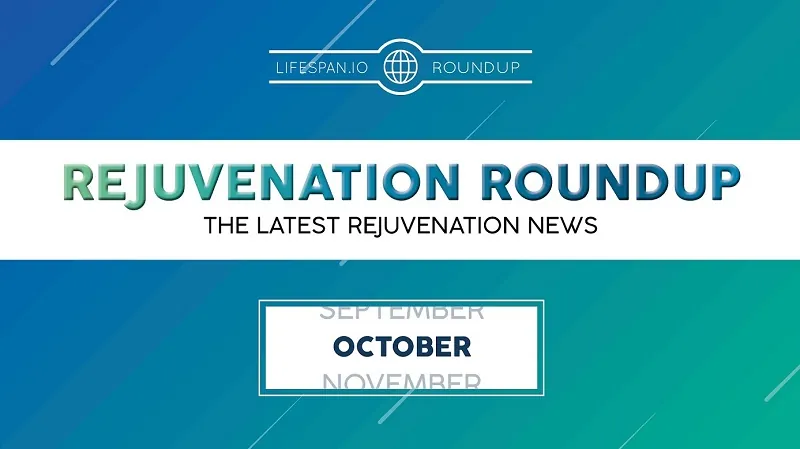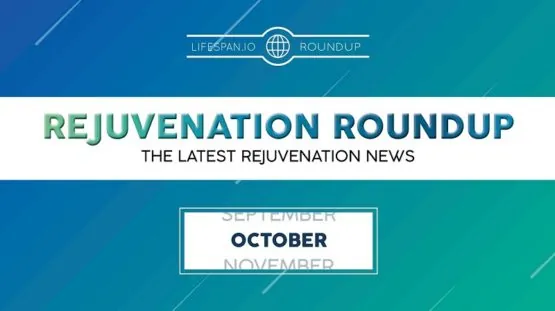Spooky season has come and gone, but the Grim Reaper is still chasing us down. Fortunately, we’ve learned quite a bit over the last month in finding ways to stop Death from getting a hold of us quite so soon.
LEAF News
Based in the United Kingdom, the All Party Parliamentary Group (APPG) for Longevity has published The Health of the Nation: A Strategy for Longer, Healthier Lives, in which it offers nine core goals for improving the healthy lifespan of older people. It is currently implementing a Business Coalition for Healthier Lives and an Open Life Data Framework in order to accomplish its long-term aims of promoting equitable, open access to life-extending technologies in the UK.
EARD2020
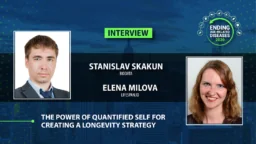 Elena Milova Interviews Stanislav Skakun: Stanislav Skakun of Biodata discusses Quantified Self and how people can use individualized data to determine their medical, dietary, and longevity strategies.
Elena Milova Interviews Stanislav Skakun: Stanislav Skakun of Biodata discusses Quantified Self and how people can use individualized data to determine their medical, dietary, and longevity strategies.
Elena Milova Interviews Mair Underwood: Mair Underwood of the University of Queensland discuss societal attitudes towards rejuvenation biotechnology, including the thought patterns that lead to opposition to rejuvenation along with society’s changing concepts of the human body.
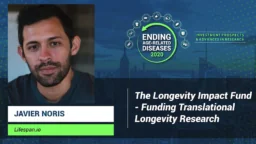 Javier Noris Presents the Longevity Impact Fund: In addition to this groundbreaking fund to aid the production of rejuvenation biotechnology, Javier Noris discussed the “valley of death” that blocks early-stage research from going further in the clinical trial process along with ways in which venture capital can fund high-risk biotechnology ventures.
Javier Noris Presents the Longevity Impact Fund: In addition to this groundbreaking fund to aid the production of rejuvenation biotechnology, Javier Noris discussed the “valley of death” that blocks early-stage research from going further in the clinical trial process along with ways in which venture capital can fund high-risk biotechnology ventures.
Panel Discussion of Biomarkers of Aging: As Steve Horvath, Kristen Fortney, Stanislav Skakun, and Peter Fedichev explain, having a robust panel of biomarkers is critical for the development of rejuvenation biotechnology therapies.
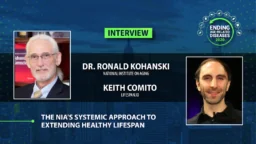 Keith Comito Interviews Ronald Kohanski: The National Institutes on Aging has a plan for extending healthy lifespan (healthspan), and Deputy Director Ronald Kohanski explains the goals of the organization.
Keith Comito Interviews Ronald Kohanski: The National Institutes on Aging has a plan for extending healthy lifespan (healthspan), and Deputy Director Ronald Kohanski explains the goals of the organization.
Rejuvenation Roundup Podcast
Ryan O’Shea of Future Grind hosts this month’s podcast, showcasing the events and research discussed here.
Helpful Information
Today’s Elderly Are Healthier Than a Generation Ago: A study in Finland shows that people no longer age as rapidly as they did even thirty years ago. Easier lifestyles and a reduced rate of smoking may be the causes.
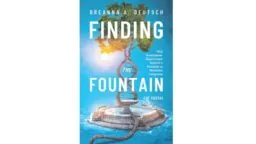 Breanna Deutsch Explains How to Find the Fountain: Her book explains what we know about rejuvenation biotechnology and what societies can be doing to promote it.
Breanna Deutsch Explains How to Find the Fountain: Her book explains what we know about rejuvenation biotechnology and what societies can be doing to promote it.
Achieving healthy human longevity: A global grand challenge: This article published in Science Translational Medicine offers a broad overview of the current state of longevity and actions that can be taken to support it.
Research Roundup
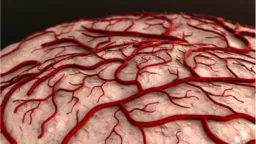 Medin Aggregates Cause Cerebrovascular Dysfunction in Mice: Alzheimer’s isn’t the only amyloid disease that affects the brain. Aggregates of the protein MFG-E8 accumulate in the blood vessels of the brain, potentially leading to serious problems such as stroke.
Medin Aggregates Cause Cerebrovascular Dysfunction in Mice: Alzheimer’s isn’t the only amyloid disease that affects the brain. Aggregates of the protein MFG-E8 accumulate in the blood vessels of the brain, potentially leading to serious problems such as stroke.
Senescent Cells Have Less SIRT1 as a Result of Autophagy: Sirtuins are known to decrease with aging, and this research provides a particularly thought-provoking reason why.
 Creating Anti-Glucosepane Antibodies: Glucosepane causes cross-links in collagen, leading to arterial stiffness. Developing antibodies for this substance is a critical step in the development of a glucosepane breaker.
Creating Anti-Glucosepane Antibodies: Glucosepane causes cross-links in collagen, leading to arterial stiffness. Developing antibodies for this substance is a critical step in the development of a glucosepane breaker.
Regenerating Skin With a Single Protein: One individual factor, which stops being produced as mice grow up, has been shown to encourage the skin of older mice to regrow as it did in their youth.
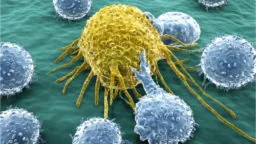 T Cell Progenitors Boost Stem Cell Therapy Effectiveness: Introducing these cells into other stem cell therapies encourages them to develop in the thymus, providing protection without triggering an autoimmune reaction.
T Cell Progenitors Boost Stem Cell Therapy Effectiveness: Introducing these cells into other stem cell therapies encourages them to develop in the thymus, providing protection without triggering an autoimmune reaction.
Fatty Tissue Generated on a Chip: Creating adipose tissue on a chip allows for better analysis and use of adipocytes, which are useful in reconstructive surgery, research, and, potentially, lab-grown meats.
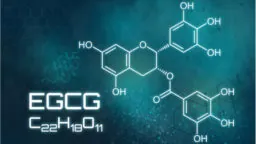 Uncovering the Origin of the SASP: The protein G3BP1 has been shown to be critical in the emission of the SASP, the chemical cocktail emitted by senescent cells that turns other cells senescent.
Uncovering the Origin of the SASP: The protein G3BP1 has been shown to be critical in the emission of the SASP, the chemical cocktail emitted by senescent cells that turns other cells senescent.
Using CRISPR to Remove Mutated DNA to Defeat Cancer: This is the most direct method of attacking cancer: removing the mutant genetic material that causes cells to become cancerous.
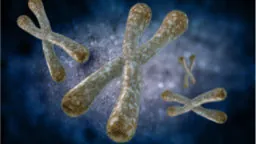 A New Mechanism of Telomere Lengthening in T Cells Discovered: This research presents the surprising finding that telomeres are transferred from antigen-presenting cells to T cells.
A New Mechanism of Telomere Lengthening in T Cells Discovered: This research presents the surprising finding that telomeres are transferred from antigen-presenting cells to T cells.
Generating Neural Progenitor Cells from iPSCs: Neural progenitor cells, which turn into neurons, are critical for maintaining cognitive abilities. Generating them from fibroblasts may one day offer hope for people with age-related brain disorders.
 A Genetic Footprint of Aging: This in-depth analysis describes the links between genes and aging, comparing mouse and human results.
A Genetic Footprint of Aging: This in-depth analysis describes the links between genes and aging, comparing mouse and human results.
Partial Cellular Reprogramming Improves Memory in Old Mice: Mice that were genetically engineered to express OSKM were better able to remember objects in later life than their unmodified counterparts.
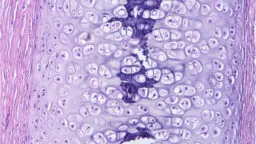 Cartilage Regeneration Accomplished in Vitro: With its lack of blood vessels, cartilage is notoriously difficult to regenerate, and this research represents a breakthrough in the process.
Cartilage Regeneration Accomplished in Vitro: With its lack of blood vessels, cartilage is notoriously difficult to regenerate, and this research represents a breakthrough in the process.
Metformin and Resistance Training: Downside and Upside: Metformin blocks the muscle-building effects of resistance training, but it appears to enhance the longevity-related effects as shown by a gene expression profile.
C 60 in olive oil causes light-dependent toxicity and does not extend lifespan in mice: This popular supplement has been reported to extend life, but this study shows that not only is it ineffective in mice, it forms toxic compounds when exposed to ambient light.
Mechanisms of Aging and the Preventive Effects of Resveratrol on Age-Related Diseases: Conducted by a prestigious Korean college and published in Molecules, this review combines a wide body of research in order to explain resveratrol’s reported effects on longevity.
Effect of rapamycin on aging and age-related diseases—past and future: This review uses quite a number of mouse studies, including mouse models of multiple human diseases, in order to describe the longevity-associated effects of the well-known compound rapamycin.
Proteomic assessment of serum biomarkers of longevity in older men: This analysis uses blood proteins to determine which men are more likely to live longer, providing a potentially useful diagnostic tool for the clinic.
Rejuvenation of mesenchymal stem cells by extracellular vesicles inhibits the elevation of reactive oxygen species: Elderly MSCs have problems with dealing with ROS, which are known contributors to age-related diseases, but rejuvenating them through infant extracellular vesicles, a method of intercellular communication, lets them regain this ability.
Klotho ameliorates diabetic nephropathy via LKB1-AMPK-PGC1a-mediated renal mitochondrial protection: Due to its effects on AMPH and mTOR, Klotho has been shown to substantially improve outcomes in a mouse model of diabetic kidney disease.
Intermittent fasting induces anticancer serum proteome response and improves metabolic syndrome: Fasting between dawn and sunset for a month has been shown to improve outcomes in a human trial. Subjects who fasted for that long had greater amounts of proteins associated with lower incidence of cancer and diabetes, and they had reduced obesity and lower blood pressure.
A ketogenic drink improves cognition in mild cognitive impairment: Results of a 6-month RCT: Part of mild cognitive impairment is the inability of the brain to properly process glucose, and ketogenesis appeared to ameliorate this issue in a randomized human clinical trial.\
Exposure to Static Magnetic and Electric Fields Treats Type 2 Diabetes: As this paper explains, the presence of both electrical and magnetic fields triggers a redox response that increases insulin sensitivity.
News Nuggets
 A New Senolytic Enters Human Trials: Unity Biotechnology is trying again, this time with UBX1325, a senolytic drug that is being tested for the treatment of diabetic macular edema.
A New Senolytic Enters Human Trials: Unity Biotechnology is trying again, this time with UBX1325, a senolytic drug that is being tested for the treatment of diabetic macular edema.

A New Atlas of Dental Cells: This atlas provides details of the sorts of cells that exist in teeth, paving the way for potential tooth replacement therapies.
SynergyAge, a curated database for synergistic and antagonistic interactions of longevity-associated genes: This in-depth database describes ways in which longevity-associated genes affect lifespan in multiple model organisms, providing a foundation for research into genetic associations with aging.
Aging Atlas: a multi-omics database for aging biology: Specifically made to support rejuvenation biotechnology research and interventions against the root causes of aging, this in-depth database combines a large number of related disciplines and data in order to provide a fully detailed map of the biology of aging.
How anti-ageing drugs could boost COVID vaccines in older people: This article published in Nature explains how reversing the effects of age on the immune system could increase the effectiveness of a potential vaccine for COVID-19.

